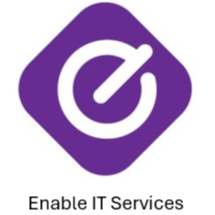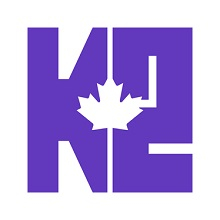
There are 44 Companies in Canada
that provide Disaster Recovery Services!
There are over 43,200 companies in the Canadian Information and Communications Technologies (ICT) sector. The large majority (over 39,000) fall within the software and computer services industries.
Discover Top IT Companies in Canada specialized in Disaster Recovery and other related services. Find the best IT service providers for your projects.
Disaster recovery services are like a safety net for your business's data and operations. They help you prepare for unexpected events like natural disasters or cyberattacks, ensuring that you can quickly recover and continue your business even in challenging circumstances.
More than 327 verified IT companies specialize in providing disaster recovery services. These companies have expertise in creating and implementing strategies to protect your data and IT infrastructure. Well-known IT companies offering disaster recovery services include IBM, Dell Technologies, and Hewlett Packard Enterprise (HPE).
Handpicked companies • No obligation to hire • 100% risk-free
Featured Companies in Canada
This month, the following Disaster Recovery companies managed to provide an outstanding service and support. It's worth taking a look.
Enable IT Services, based in Perth, provides managed IT services, cybersecurity, and cloud integration for reliable IT infrastructures.
Empowering businesses with innovative IT solutions, cloud services, and digital transformation.
Explore Top Disaster Recovery Companies in Canada
FlairsTech is a technology-driven Managed Services Provider (MSP) operating from five offices on three continents, serving over 100 global clients.
Digital Link is pleased to deliver managed IT solutions, web design and digital marketing services to clients across Canada.
K2 Networks is a Full-Scale IT Consulting firm that specializes in providing Managed IT Services, Cybersecurity, and Strategic IT Consulting Services.
Services:
HabileLabs - A Premier Software Development Company in India
IT Consulting, Managed IT Services and IT Support, and Cybersecurity for growing, mid-size, and enterprise businesses in North America.
Comprehensive IT support: setup, maintenance, and management of workstations, servers, networks, cybersecurity, and cloud solutions.
Cybersecurity, Managed IT and Cloud Hosting solutions that bring you peace of mind.
One Piece IT delivers tailored IT support, cybersecurity, and web solutions to help Calgary businesses grow securely and efficiently.

Telepathy Infotech Verified Company
BRITISH COLUMBIA, Canada Head office in: United States
We are a dynamic software company committed to crafting innovative solutions that empower businesses to thrive in the digital age.
Montreal IT Company: Expert IT Services & Security Solutions
Empowering Airdrie businesses with managed IT, cybersecurity, cloud solutions, and consulting since 2008. Trusted, tailored, and innovative.
Services:
Core IT: Secure, Local, Proven.
Services:
Empowering businesses with secure IT, cybersecurity, and cloud solutions across Canada, the US and Greece.
Your Partner in the IT and tech Space In Iraq
TMR Consulting Microsoft Gold Partner Tier 1 CSP in implementing Microsoft Business Solutions and Microsoft licensing.
Your Digital Partner for Growth
NetFusionDesigns is a leading IT services based in Toronto, dedicated to delivering IT solutions tailored for small and medium-sized businesses.
Providing Secure, Managed IT services and support to municipalities, SMBs, Medical Clinics and NFP's across Alberta, BC and Saskatchewan.
- 1
- 2
Filter Disaster Recovery Companies in Canada by Cities
Find the right tech company near you or from a specific city. Some of the best companies might be located in smaller cities.
Find more Disaster Recovery companies around the world
TechBehemoths is the world's most advanced and user-friendly platform to match IT Companies with real clients without hustle.
Canada IT Industry: Companies and General Profile
Canada IT Industry: Companies and General Profile
There are over 43,200 companies in the Canadian Information and Communications Technologies (ICT) sector. The large majority (over 39,000) fall within the software and computer services industries.
The ICT sector consists mainly of small companies, with approximately 37,500 of them employing fewer than 10 people. The number of large companies employing over 500 individuals accounts for approximately 105 firms, including subsidiaries of foreign multinational corporations.
In a more industry-narrow way, the Canadian advertising and marketing industry is growing based on international awareness of creativity and the multicultural population. The progressive approaches are resonating with both US and globally-based companies, Mark Tharme from Muse Marketing says.
Why You Should Work With Canadian IT Companies
Canada has found itself in a favorable position compared to other countries that have a well-developed IT infrastructure. Web & IT agencies have a fast-developing rate due to facilitating policies and attracting more young professionals than any other country in the region.
Additionally, IT companies in Canada provide a full-service range with a considerably lower price than in the U.S., and offer in exchange excellent execution, fair customer experience, and professional project management.
From another perspective, working with Canadian IT companies could bring added value in terms of security. In uncertain times, both politically and economically, working with IT companies in Canada reduces technology risk.
What You Should Be Aware of When Working With Canadian IT Companies
The Canadians started to focus on developing their IT industry in 2012, which mainly reveals a lack of consistent experience in the web & software industry. Since almost all IT companies in Canada are small, with fewer than 10 people, the industry is in the full development process, and most of the agencies are not yet ready to take on big projects. Since then, the Canadian IT industry has rapidly evolved with major tech hubs like Toronto, Vancouver, and Montreal by 2025.
At the same time, Canadian companies pay a living wage, and our standard of living is higher than in many other countries. As a result, expect the cost for services to be somewhat higher than in emerging economies.
Are Canadian Web Companies Reliable?
Along with the workforce, Canada attracts an increasing number of companies from around the world, and many of them find the place comfortable and suitable for growing a business in the IT industry. In 2025, there were more than 7,000 IT startups in Canada, according to StartupBlink. Small companies in the Canadian IT industry are new entries and don’t have a global reputation compared to tech giants that relocated or opened new offices in Canada. Nonetheless, you cannot name small Canadian IT companies unreliable, as they all obey the same principles and rules as the bigger ones.
How the Canadian IT Industry Compares to the Neighboring Countries
With the leading US on the continent and probably globally, Canada started to get more attention from the market as being a healthy alternative to what the US has to offer. This refers both to skilled developers & web designers and also clients. Due to the market accessibility and developed IT infrastructure, Canada has its own advantages over the US, like prices and availability, but it’s still behind the U.S in terms of competitiveness.
Overall, Canada is a promising destination for IT companies and a good option for web projects with a growing number of IT centers. The Toronto - Kitchener - Waterloo IT area registered good progress both in training and hiring new talents that compete even with the US Silicon Valley.
What Makes Canada Attractive for IT Companies?
Canada is attractive because the society embraces a global mindset, which is natural due to the multicultural population, both in the industry and in the general population. Historically, the Canadian design and advertising industry was built on American, European, and Japanese cultural influences. Today, the country benefits from influences from all over the world.
At the same time, Amanda Nelson from The Art Of Business mentions that Canada has found itself in a favorable position compared to other countries that have well-developed IT infrastructure. Web & IT agencies have a fast-developing rate due to facilitating policies and attracting more.
How Does the Canadian Government Support the Local IT Sector?
Federally, the Canadian government is providing access to capital through grant programs, including digital transformation grants for businesses, which in turn creates opportunities for digital marketing and IT firms as service providers.
Alberta and Ontario - The Best Canadian Territories/Provinces For IT
Out of 10 Territories and Provinces, Canada is divided. There are 2 worth mentioning - Alberta and Ontario, with Calgary and Toronto as the main tech hubs.
The Toronto/Hamilton business corridor (known as the GTHA) is growing rapidly, both in population and as an international business centre. It already has the highest-density population in Canada and is projected to grow significantly by 2050. With close proximity to Northeastern US markets, high awareness of the city of Toronto as an international destination, and an excellent culture of creativity across all disciplines, this area is well-positioned for growth. Immigration policies are also favorable for companies seeking a location in North America.
In addition, according to Ty Mikitka from Vertical Motion Inc., in recent years, Calgary, Alberta, has made growing strides to become a recognized Western Canadian technology hub thanks to the influx of large technology companies. Notable organizations, including Unity Technologies, Infosys, Test Driven Solutions, RBC Innovation Hub, and Amazon Web Services (Late 2023-Early 2024), now call Calgary home, creating thousands of IT jobs for local Canadians.
"Canadian IT Talent Pool is Good to Excellent"
When talking about the Canadian talent pool, Mark Tharme appreciated the local talent pool as good to excellent. He thinks that IT and communications-related education is available at all levels: colleges, universities, and private schools offer courses in a wide range of information technology disciplines. Students have opportunities to do work placements, co-ops, and internships with many well-regarded companies while studying or upon graduation from a recognized program.
Plan to Open a New IT Business in Canada? Focus on New Technologies!
Local tech leaders also mention that there is enough room in the market for new, innovative companies. However, most of the opportunities are especially in new and emerging technology areas, including AI, cybersecurity, and data management. Canadian companies are "punching above their weight" in many of these areas. Another sector good to explore is security. As Justin Harney from LionEater, the country needs IT security leadership.
As for how easy it is to open a business in Canada, Jeffrey Miles from Jeff Social Marketing mentions that it’s simple to open a business in Canada. The first step is to apply for a business license.
This article was created together with professionals coming from reputable Canadian IT companies. Special credits: Jeffrey Miles, Mark Tharme, Justin Harne, Ty Mikitka, and Amanda Nelson.
What is Disaster Recovery and what are its benefits for your projects?
Disaster recovery services are like a safety net for your business's data and operations. They help you prepare for unexpected events like natural disasters or cyberattacks, ensuring that you can quickly recover and continue your business even in challenging circumstances.
More than 327 verified IT companies specialize in providing disaster recovery services. These companies have expertise in creating and implementing strategies to protect your data and IT infrastructure. Well-known IT companies offering disaster recovery services include IBM, Dell Technologies, and Hewlett Packard Enterprise (HPE).
Disaster recovery service providers use a range of tools and technologies to safeguard data and ensure business continuity. These include backup and recovery software, cloud storage solutions, virtualization technologies, and monitoring systems. Popular cloud platforms like Amazon Web Services (AWS) and Microsoft Azure also play a crucial role in disaster recovery.
Disaster recovery services are typically included in a suite of services that also address business continuity and risk management. Other related services may include:
-
Business Continuity Planning: Developing comprehensive strategies to keep your business running during disruptions.
-
Cybersecurity Services: Protecting against cyber threats and data breaches, which are often a cause of disasters.
-
Risk Assessment: Identifying vulnerabilities and potential threats to your business.
-
Emergency Response Planning: Preparing for immediate actions in the event of a disaster.
-
Data Protection Services: Implementing data encryption, access controls, and data loss prevention measures.
Selecting the right IT company for disaster recovery services requires evaluating their experience, the comprehensiveness of their disaster recovery solutions, and their responsiveness in case of an emergency. Look for providers who offer tailored disaster recovery plans that align with your specific business needs and recovery time objectives (RTOs).
Disaster recovery service providers are essential for various projects and scenarios, including:
-
Data Centers: Ensuring the continuity of critical data center operations.
-
E-commerce Websites: Protecting online businesses from downtime due to technical issues or cyberattacks.
-
Healthcare Systems: Safeguarding patient records and medical systems to ensure uninterrupted care.
-
Financial Institutions: Meeting regulatory requirements for data protection and business continuity.
-
Manufacturing Plants: Minimizing production disruptions caused by equipment failures or supply chain interruptions.
Disaster recovery services are crucial for companies of all sizes and industries, including:
-
Small Businesses: Protecting essential data and ensuring minimal downtime.
-
Enterprises: Managing complex IT environments and maintaining regulatory compliance.
-
Healthcare Providers: Safeguarding patient records and critical medical systems.
-
Financial Institutions: Ensuring uninterrupted banking and financial services.
-
Government Organizations: Maintaining public services and data integrity during emergencies.
Disaster recovery is not a one-size-fits-all solution. It's essential to conduct a risk assessment and work with a disaster recovery service provider to develop a tailored plan that matches your business's specific needs and budget. Regular testing and updates of your disaster recovery plan are also crucial to ensure it remains effective as your business evolves.






















